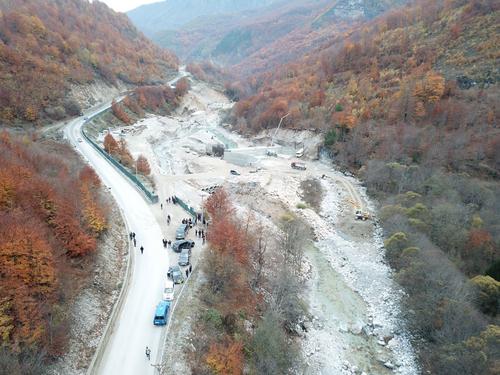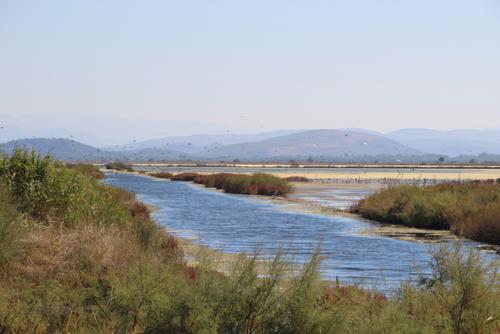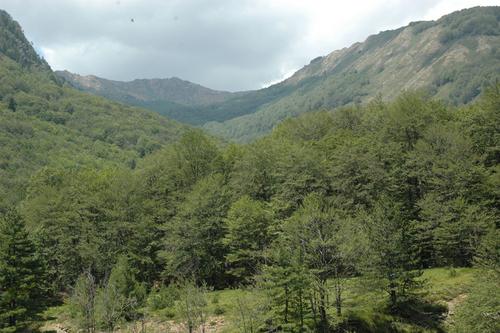Hydropower, deforestation, biodiversity: The Commission's report on the EU candidate countries sets out clear requirements for nature conservation.

Construction site on the Albanian Valbona River. The Dragobia hydropower plant is being built here, destroying yet another wild river in the Balkans.
© Mirjan Aliaj
Ulcinj Salina in Montenegro: Protected on paper after lengthy efforts by EuroNatur and its partners - but on the ground, the government is doing nothing to preserve the area.
© Janinka Lutze
Shebenik-Jablanica primary beech forest, one of the most pristine forest areas in the Western Balkans - yet under massive exploitation pressure.
© Gabriel Schwaderer/EuroNaturThe EU Commission has presented its status report on the accession efforts of the six Western Balkan countries: Albania, Bosnia and Herzegovina, Kosovo, Montenegro, North Macedonia and Serbia are all hoping to join the European Union. In addition to issues relating to the rule of law, the report also reveals the candidate countries' obvious shortcomings in matters of nature conservation - factors which must play a central role in the accession negotiations.
Case study: Hydropower in the Balkans. “The EU Biodiversity Strategy for 2030 calls for the rewilding of 25,000 kilometres of rivers. The countries of the Western Balkans should be expressly guided by this. How, at the same time, can further expansion of hydropower on the unspoilt rivers of Albania or Bosnia and Herzegovina be acceptable?" said EuroNatur Executive Director Gabriel Schwaderer, giving an initial assessment of the reports. "That’s an ‘I’ll have my cake and eat it’ approach to biodiversity protection."
Case study: Ulcinj Salina in Montenegro. It is thanks to the efforts of EuroNatur and its Montenegrin partner organisations (CZIP and MSJA) as well as BirdLife Europe that the saltworks, which is vitally important for migratory birds, is legally under protection. It is also imperative that the area is managed from a nature conservation perspective – prompt clarification of the ownership issue is key to achieving this. “We very much welcome the fact that the EU Commission has emphasised this point so clearly in the report. The Commission has made it a condition of Montenegro's accession to the EU that the Ulcinj Salina is preserved as a European natural treasure; we are demanding that too," stressed Gabriel Schwaderer.
Case study: Logging and pressure to exploit forests. "This is where Europe's next conservation tragedy is looming," said Gabriel Schwaderer. “Up till now, the forest resources in many regions of the Balkans have not been under too much pressure, but that is changing. It is high time that the EU Commission addressed this issue. Under the Green Deal, the protection of primary and natural forests is a priority for the EU Commission; it must also now be a priority for the accession candidates of the Western Balkans."


